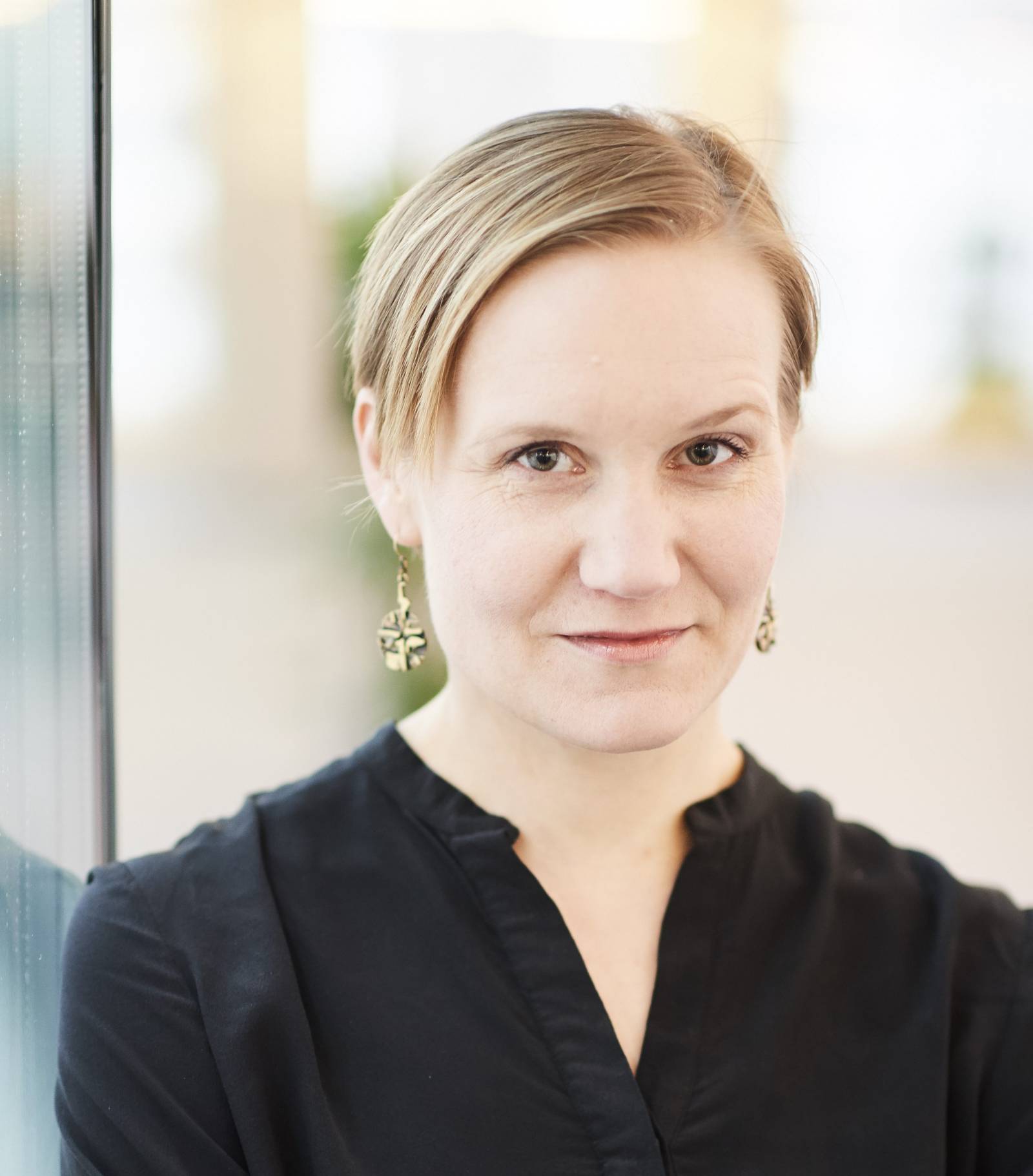
Economy as a gender equality question
EUGenDem Senior Researcher Anna Elomäki gave a talk about gender and the economy in a high-level seminar In Quest for Sustainable Europe: The Economy of Wellbeing organized in Brussels by the Finnish Government. In her talk Elomäki shed light on the complex relationship between gender equality, economy and economic policies and argued that making economic policies more gender equal requires that we rethink the very concept of economy.
In economic decision-making and in public debates about the economy, gender equality and the economy are often seen as separate issues. In particular in times of the economic crisis and austerity, the relationship between the two is seen as hierarchical. Economy comes first, gender equality has to yield. Gender equality policies are seen as a luxury that has to wait for better times, and economy determines what gender equality issues can rise on the political agenda. For example, in Finland calls for pay rises for the female-dominated public care sector have been rejected and even ridiculed as antithetical to national competitiveness.
This separateness is also visible in that knowledge about gender equality and the economy, in particular feminist knowledge, is often deemed as irrelevant for economic policy-making. For example, the research about the gendered impacts of cuts in public services and benefits has not been visible in decisions about austerity measures. Gender equality actors and economic actors – both in policy-making and in research – actors rarely collaborate.
Yet gender equality and economy are part of the same coin. The relationship between the two works in two ways. We have today heard a lot about how gender equality influences economic outcomes: how it can contribute to economic growth and employment, and how economic policies are more effective when gender perspective is taken into account. But it is as important to understand that economic policies have gendered impacts. Austerity policies adopted across Europe after the economic crisis have taken gender equality backwards. Women – in particular minority women – have borne the brunt of the cuts in services and benefits, and cuts in public services have shifted responsibility and costs of care from the public sector to households – in practice women. Policies to advance economic growth and competitiveness, such as efforts to reduce labour costs, may also have gendered outcomes.
It is therefore important to see economy as a gender equality question. We also need more dialogue between gender equality actors and policies and between economic actors and policies.
Towards gender aware economic policy
A key part of thinking about the economy as a gender equality question is to make economic policies more gender aware. It is now often acknowledged that increasing employment rate does not happen without addressing the reasons that withhold women from the labour market, and at EU level as well as in member state various individual measures have been or could be taken to this end: investing in childcare, making childcare free, parental and paternity leave…
From the perspective of feminist research, this is not enough. In order to make economic policy more gender equal, we need to go further and rethink the economy itself.
What I mean by this is that economic policies and the knowledge about the economy that underpins these policies are based on all kinds of gendered assumptions and hierarchies. Such hierarchies are present, for example, in what we count to be part of the economy, and what kinds of activities we see as economically valuable.
These assumptions and hierarchies are visible in the key concepts we use when we talk about the economy – for example the GDP and productivity. They make it difficult to see gender inequalities in the society and might even legitimate and reproduce them.
Already the way the economy is usually understood is gendered. When policy-makers and mainstream economists talk about the economy, they usually refer to market economy: monetized production and exchange of goods and services. Unpaid work, like taking care of children or the elderly at home, cooking and cleaning, or voluntary work is not part of this understanding. This means that unpaid work and those who provide it are marginalized in economic policies as well. Unpaid work is still mainly women’s work: in some EU member states like Italy almost 70 per cent of unpaid household work is provided by women.
Unpaid work has economic value. It increases the well-being of those who directly benefit from it, and through producing new labour and maintaining the existing labour force, it makes the functioning of the market economy possible. Yet unpaid work is not taken into account in national accounts or the GDP. There are, however, ways to measure the value of unpaid work, and this value is significant. In Finland, for example, in 2012, taking unpaid work into account would have increased the GDP by 41%.
Also the way we understand economic value is based on gendered hierarchies. To put it bluntly, work mainly done by women is valued less than work mainly done by men. The systematic undervaluation of women’s work is visible both at micro and macro -level.
We see this concretely in pay differences between the male dominated private sector and the female dominated public sector, as well as between male and female dominated professions within the public sector. In Finland a university-educated kindergarten teacher is paid less than an engineer with a lower degree, even when they work for the same municipality.
This undervaluation is also in debates about economic policy. Female dominated sectors are often seen as less important and useful for the economy than male-dominated sectors. For example, female dominated care sector is often seen as a burden for the economy, rather than a source of innovation and a target for investment. During the economic crisis policy-makers were often more concerned about lay-offs in male-dominated industries than lay-offs in female dominated retail.
There is a specific activity that is extremely important for human wellbeing and gender equality that is at the core of these exclusions or undervaluation. This is care: care for children, care for the elderly and the everyday maintenance of life.
In debates about economic policy, care is often seen as an economic burden for the state, as in when we talk about the sustainability gap. There is also a certain unwillingness to pay for care. One reason for this is that we are used in that someone – often women – cares for free or at least cheaply.
What is important to understand is that there is no such thing as free care. Care has always costs for someone. When public care services are cut, costs are transferred to households and individuals. These costs are not necessary about money – there are also mental costs that are related to the stress we feel about juggling between work and, worrying whether an older relative gets his care needs fulfilled.
We need new concepts to bring care – both paid and unpaid – into economic debates and into the heart of our understandings of the economy. ‘Care economy’ is one such concept, ‘reproductive economy’ is another. What is important is that we understand caring as economic activity and caring and the care economy or the reproductive economy as and integral part the economy as a whole.
What are then the ways forward to making economic policies more gender aware? One step is gender budgeting, which is a strategy to bring gender perspective and gender equality goals into budgets, economic policies and economic governance. The goal is to change the way common resources are collected and spend in a way that supports gender equality and the wellbeing of all. This requires, among other things, that we analyze budget expenditures and new policies from a gender perspective and take the results of the analysis into account.
Another important thing would be to rethink the goals of economic policy. What if, instead of competitiveness, we would focus on well-being? What if, we would not only look at the sustainability gaps and budget deficits but also care deficits.
There are also different ways to take unpaid work into account in policy-making. We can improve statistics about time use, measure the economic value of unpaid work regularly, and make this value visible in key economic policy documents. We could also to take unpaid work into account when doing impact assessments of policies. This way policies to cut public care services would no more appear as savings for the public sector but as transfer of costs to households. It would also important to adopt policies that encourage the sharing of care between women and men and that enable us all to care for other when we so wish.
Yet another step is to invest in care infrastructure as well as shift our thinking (as well as national accounting systems) so that we would not see public care services, like teachers’ salaries as public expenditure but as a public investment. Childcare and education are already commonly seen as social investments, but we also need investment in good quality elderly care that supports human dignity. Care investments support the economy in many ways.
Gender equality in the EU’s budget and economic policies
The efforts to mainstream a gender perspective in the EU’s budget as well as its economic policies have largely failed, and the visibility of gender equality in both has declined.
The share of EU funding dedicated to the promotion of gender equality is small and has been declining. Specific programmes and budget lines for the promotion of gender equality have disappeared largely due to the efforts to streamline the EU’s budget into bigger and bigger programmes and to increase flexibility of funding allocations within programmes. Gender equality objectives and gender mainstreaming obligations have been integrated in funding programmes inconsistently, and commitments to gender budgeting are weak. The EU’s gender blind key priorities overshadow the EU’s gender equality commitments in both the long-term framework and the annual budget process.
The ongoing negotiations about the EU’s next Multiannual Financial Framework are extremely important for gender equality. These negotiations are a key moment for taking gender budgeting further at EU level, and the outcomes of their outcome will determine how the EU will be able to advance gender equality in the next seven years.
The visibility of gender equality in the EU’s economic policies has declined since the middle of the first decade of the 2000s. In addition, the crisis has pushed gender knowledge into margins, and it has been difficult for gender equality experts, NGOs and MEPs to bring a gender perspective into the debates about the EU’s economic policies and economic governance.
The integration of gender equality in the EU’s key economic governance architecture, the European Semester, remains partial. The reference to gender equality in Annual Growth Surveys, Country Reports, National Reform Programmes and Country Specific Recommendations are rare and narrow. A yet bigger problem is that the gender impacts of the EU’s policy recommendations for the member states have never been assessed. Yet the demands to focus on fiscal stability, make public services more efficient, and reform pension systems might lead to backwards development in gender equality.
But there is an even bigger question we need to ask. Namely, what does the understanding of the economy implied in the EU’s economic policies and economic governance framework mean for our ability to identify and address gender inequalities at EU level as well as in member states? The conceptions of the economy at EU level matter, because they affect the way economy and economic policies are discussed across the EU. This, in turn, determines whether there is room for gender equality in economic policies – not only at the EU-level but in the member states as well.
Based on a talk given at the seminar In Quest for Sustainable Europe: The Economy of Well-Being organised by the Finnish Ministry of Social Affairs and Health in Brussels 19.10.2018.


